 |
| Scenes from the Living End, Bike Kill and the Christodora. |
"Marriage must
incessantly contend with a monster that devours everything: familiarity." - Honore de Balzac
Friday, the kids and I ran around Brooklyn, taking a trip off the beaten
path to Flatbush, crossing Altantic, and back to our neighborhood, past the
commons through holy Brooklyn. We ran
into a few of my students, other friends, and made our way home. Friends were coming over and we stayed up
late. I could not sleep. There are thousands of ways of sleeping badly. I thought about my friend Spencer’s old saying
monogamy does not work, but neither does non-monogamy.
I have been taking a class on Nietzsche. So I pulled the philosopher’s Twilight of the Idols, so chalk full of
contradictions. He lived a productive
life – writing the majority of his work between 1871-1989 - before being
consumed by madness, or perhaps his own contradictions. By 1889, a malady
consumed him. Perhaps syphilis,
suggested Michael
Pelias, during our class “Nietzsche: Philosophizing with a Hammer:
the Body, Culture and the Transvaluation of radical practices.” He writes: “Nietzsche is the most controversial figure in the
history of philosophical thinking. He has been considered the ‘godfather” of
Fascism, a raving anti-Semite, misogynist, a playful and contradictory promoter
of democratic values, alongside Marx a proto- deconstructionist of bourgeois
culture and philosophy as we know it, a Bonapartist , the thinker who cannot be
coded , etc. This very difficult and often paradoxical and contradictory
philosopher, psychologist and philologist obviously cannot be pinned down to
one category and because of this, Nietzsche’s texts and thought is open to
multiplicity of interpretations and possible practices.”
I
read about Neitzche’s flirtations with intoxication, the “bulging will” of
affirming our desires, even as we navigate the contradictions between Dionysus
and Apollo, democracy and fascism, power and totalitarian thinking. We ride the high and then crash, over and over
again.
In
the midst of the difficulty of the world, Nietzsche begins with a call for both
cheerfulness and a hammering of the idols, writing his 1888 preface:
|
“Maintaining cheerfulness in the
midst of a gloomy task, fraught with immeasurable responsibility, is no small
feat; and yet what is needed more than cheerfulness? Nothing succeeds if
prankishness has no part in it. Excess strength alone is the proof of
strength….
…eternal
idols, which are here touched with a hammer as with a tuning fork: there are
no idols that are older, more assured, more puffed-up — and none more hollow.”
Rejecting
idols and Christianity, beer and reason, the philosopher suggests there a
different path to be traversed.
There is nothing linear about the
path that Nietzsche sets out. I loved
him in college and found his Birth of
Tragedy tremendously useful. I had always heard he was a fascist. But I did not believe this until I read his
words condemning democracy and mixed social relations, perhaps even miscegenation laws prohibiting sex among different groups. He writes:
By
birth, Socrates belonged to the lowest class: Socrates was plebeian. We are
told, and can see in sculptures of him, how ugly he was. But ugliness, in
itself an objection, is among the Greeks almost a refutation. Was Socrates a
Greek at all? Ugliness is often enough the expression of a development that
has been crossed, thwarted in some way. Or it appears as declining
development. The anthropological criminologists tell us that the typical
criminal is ugly: monstrum in fronte, monstrum in animo [monstrous in
appearance, monstrous in spirit]. But the criminal is a decadent.
What
can he mean by an “expression of a development that has been crossed…” or that “the criminal is a decadent…”
He
seems to condemn reason and anarchy, impurity and mixed relations.
“The
moralism of the Greek philosophers from Plato on is pathologically
conditioned; so is their reverence for logical argument. Reason equals virtue
and happiness, that means merely that one must imitate Socrates and counter
the dark appetites with a permanent daylight — the daylight of reason. One
must be clever, clear, bright at any price: any concession to the instincts,
to the unconscious, leads downward.”
Yet,
he reminds us. “so long as life is ascendant happiness equals instinct.”
Reason
is tyrannical, the irrational Dionysus challenges its foundations. “Reason is what causes us to falsify the evidence
of the senses. If the senses show
becoming, passing away, change, they do not lie.”
Given
this, our biggest error is Christian morality, argues the philosopher.
|
“And
indeed there have been consistent moralists who wanted man to be different,
that is, virtuous — they wanted him remade in their own image, as a prig: to
that end, they negated the world! No small madness! No modest kind of
immodesty!
“Morality,
insofar as it condemns for its own sake, and not out of regard for the
concerns, considerations, and contrivances of life, is a specific error with
which one ought to have no pity — an idiosyncrasy of degenerates which has
caused immeasurable harm.
“We
others, we immoralists, have, conversely, made room in our hearts for every
kind of understanding, comprehending, and approving. We do not easily negate;
we make it a point of honor to be affirmers. More and more, our eyes have
opened to that economy which needs and knows how to utilize everything that the
holy witlessness of the priest, the diseased reason in the priest, rejects —
that economy in the law of life which finds an advantage even in the disgusting
species of the prigs, the priests, the virtuous. What advantage? But we
ourselves, we immoralists, are the answer.”
Embracing
the immoralists, the philosopher condemns drink and anarchism, Christianity and
rationality, equality and free will.
Instead he suggests the artist lives a different morality, channeling intoxication,
even if leads to a frenzy.
|
“8
|
Toward a psychology of the artist. — If there is to be art, if there is to be any aesthetic
doing and seeing, one physiological condition is indispensable: frenzy.
Frenzy must first have enhanced the excitability of the whole machine; else
there is no art. All kinds of frenzy, however diversely conditioned, have the
strength to accomplish this: above all, the frenzy of sexual excitement, this
most ancient and original form of frenzy. Also the frenzy that follows all
great cravings, all strong affects; the frenzy of feasts, contests, feats of
daring, victory, all extreme movement; the frenzy of cruelty; the frenzy in
destruction, the frenzy under certain meteorological influences, as for
example the frenzy of spring; or under the influence of narcotics; and
finally the frenzy of will, the frenzy of an overcharged and swollen will.
What is essential in such frenzy is the feeling of increased strength and
fullness. Out of this feeling one lends to things, one forces them to accept
from us, one violates them — this process is called idealizing. Let us get
rid of a prejudice here: idealizing does not consist, as is commonly held, in
subtracting or discounting the petty and inconsequential. What is decisive is
rather a tremendous drive to bring out the main features so that the others
disappear in the process.
|
From
time to time, we all dance with self-immolation. Sometimes I can’t sleep when I’m
grasped by that feeling. Many of us get
lost in that feeling. From time to time,
we all miss that sweet spot.
Up
late on Friday night, my friend Jim linked me to Tim Murphy’s new essay, “What I Learned about Love
While Getting High.” He
writes about flirting with the same feeling, as he sees the beauty in a moment
beyond time, as intoxication grips him.
He meets two friends who show him a feeling he never had before. Their cheerful comradery is irresistible.
“Ron and Evan were the first gay couple
I intimately observed laughing together, having a ball, conspiring giddily, in
their domestic life. One of them would say something funny and they’d both
crack up. They were so obviously in love. This was very confusing for me. This
was what I wanted, after all, at some vague point in my future. But did it come
with loads of drugs and a turnstile at the apartment door?
I yearned to be in that apartment,
spend as much time there as I could. It was partly the addict’s need for a drug
cave, but it was also partly something I couldn’t name. They were always so
happy to see me — not just to have sex, but to talk to me. About books,
politics, what I wanted for my life, how they’d met. And underneath my addict’s
shame and guilt, I was always happy to see them. More than I understood.
I felt pulled like a magnet toward
their apartment and everything we did there, that strange feeling of safety and
love amid the degradation and the madness.
They were both, as always, happy to see
me, as I was to see them — roaringly happy inside, as though I were finally
exhaling after months of separation.
In one another’s arms, we caught up
like three old lovers. Evan’s work had taken him to Africa and he showed us a
slideshow of the trip. But I couldn’t separate intimacy with them from the drug
instinct. Finally I broke down and asked abruptly if we could just get high
together.
“I wanted to talk to you about that,”
Evan said. “Ron’s been up partying for two days now and I want him to stop. He
can’t set limits and I’m really worried about his health.”
Ron sat there sheepishly, silently,
like a kid being chided. In my whole career as a user, in both senses of the
word, I’ll always remember this moment as my moral nadir. Because I said, “I
hear you, but I’m an addict too and I can’t stop and I just don’t care. I just
wanna get high with you guys like we used to because I miss it so much.”
Ron looked at Evan like a child waiting
for dad to give the green light for ice cream. Finally, Evan smiled indulgently
and said, “Sure, whatever, let’s do it.”
“Thanks, Evan!” Ron and I cried. Soon,
we were getting high. I felt full of gratitude to them both for taking me back
to our sweet spot. In a private nanosecond between Ron and me, he whispered
gleefully, “I can’t stop and I don’t want to stop either. I’m like you.”
That was the last time I ever got high
with either of them. We used together for about 24 hours, none of which I have
any recollection of except the first 15 minutes, into the following evening,
when Ron stuffed $60 into my pocket to make sure I got back to Boston okay. But
I didn’t go straight back. I went to a sex club for another six hours or so,
then got on a 3 a.m. bus at Port Authority, sleeping fitfully, making all sorts
of strange noises, roaring down I-95 with other lost souls who board Greyhounds
in the middle of the night.
I want to tell him what may sound truly
pathetic to you: that those days and nights in their apartment were among the
happiest moments of my life.”
Love consumes us, but the double edge of the ride with the
Dionysus cult can be days without sleep, the mind losing itself to darkness,
violence and Thanatos.
Yet, how do we love and contend with risks without losing
ourselves? Classical Greek mythology is
full of references to these struggles between pleasure and death. Few of the sailors in Greek myths could make
it past the enchanting and deadly song of the Sirens, which lured sailors with
seductive songs of Hades. While most
knew the ground around them was lined with bones of sailors who had made
similar attempts, few could turn away.
Only Orpheus and Odysseus made it past the Sirens. Orpheus drowned out
the Sirens’ song with other music, while Odysseus plugged the ears of his
sailors with beeswax
Thursday night, I found myself watching the old 1990’s pre-protease
1992 HIV flick, The Living End. Here love and eros becomes the only way
to combat the sword of Damocles hanging over the heads of two newly diagnosed
HIV positive gay men. Connection is a
way of resisting surrendering to the void.
But the city and the dessert, the feeling of the street still
beckons.
All Saturday long, I rode bikes and we made our way to Bike
Kill in Bushwick.
� #BIKEKILL 13 �
10/29/2016, 12-8pm, Totally FREE.
Afterparty to follow 10-LATE...
…RIDE YER BIKE…
__o
_`\ <,_
(_)/ (_)
@()xxx[{:::":::":::":::":::":::":::=>
Your favorite holiday since 2002. ...
10/29/2016, 12-8pm, Totally FREE.
Afterparty to follow 10-LATE...
…RIDE YER BIKE…
__o
_`\ <,_
(_)/ (_)
@()xxx[{:::":::":::":::":::":::":::=>
Your favorite holiday since 2002. ...
Cyclists in costumes zoomed up and down the graffiti lines streets on the
way to 121 for Bike Kill.
Inside,the smoke and fire were everywhere, dry ice and the smell of smoke,
speed metal and ten foot high cyclists careening. But it felt real, the whole
of Brooklyn seemingly drawn to its fire.
All Halloween long we all were, the embers burning bright, the city teeming
on the verge of something.
And the weekend proceeded, as the world went crazy, with
emails and entanglements about the election wore on everyone. I always liked
Anthony Weiner. Met him at a harm
reduction forum we put on with CitiWide Harm Reduction when he was running for
Mayor. He felt smart and alive. I am sorry he did not take the message to
heart.
I ran into him on the subway a month or so ago and asked him
why he hadn’t just come clean about things earlier on, admitting he was in it
for pleasure. He said he was afraid and embarrassed. Why couldn’t Bill Clinton have just told the
truth. Hillary and I have a modern
relationship and, of course, I adored my time with Monica. But I love Hillary
and the power we share. These were not the words that came from him mouth. The politics of shame are powerful and
destructive. The unintended consequences
extend in countless directions, including into this election. As Sarah Schulman wrote on facebook
yesterday.
“You know what's so weird about the Anthony Weiner thing?
Except for this last fiasco with an underaged girl which is clearly off and
illegal, all of his previous actions have been victimless, personal pleasure,
sexual expressions. He just should have said that he does what he does because
he enjoys it and so do thousands and thousands of other people, and his whole
career might have been saved. It's the false contrition, the imposed pretense
of sexual wrong, and the performance of guilt that turned this whole thing into
a scandal. He and his wife could have used some support to communicate better,
but that is really all that this is actually about. Instead it got turned into
a tool of repression. Just another example of how unaddressed anxiety and guilt
enhances the power of the state.”
So, the state condemns the immoralists and we all fall in
line, scolding and chatting extending the ever expanding discourse. But it is
not getting us anywhere: expression condemnation, repeated again and again, in an eternal
return. Condemn, repress repeat. Yet, how do we cope with the desire for
something, the need to escape the pain, with “The pangs of despis'd love,
the law's delay,” as Hamlett did? The charge to live another life is
tantalizing. The possibilities, the will
to power Nietzsche describes, the risks and pleasures as Tim Murphy points out,
and Nietzsche’s life demonstrates, these are everywhere. We are still dancing
with them. The cruelties of April and the depression of fall, madness on the
one hand, suicide, the third leading cause of
death among young adults in the US, on the other. And quiet desperation on still the other. The Twilight
of the Idols was the philosopher’s last book. He spent his final days indisposed after a
mental breakdown. While we all read him,
I’m not sure we learn from him.
Sometimes I’m not sure we want to. Risk has a high degree of allure. The
question is how do we reduce the harms of modern living and expression without succumbing
to a similar fate? Or are we all just
participating in a collective dance toward Thanatos, with pipelines makingtheir ways through our hearts and consciousness?































































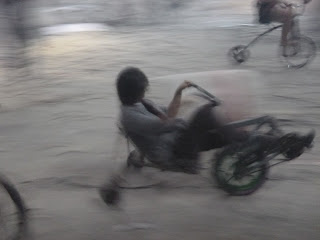

















































































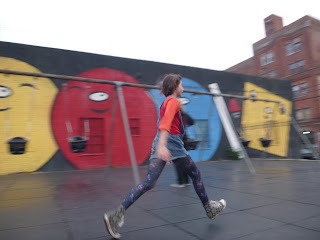


























































































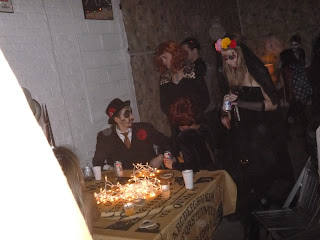
















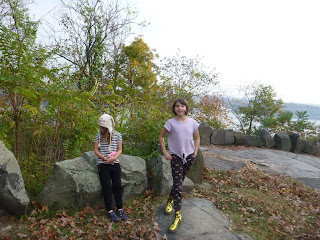
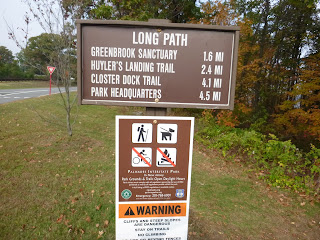










































No comments:
Post a Comment